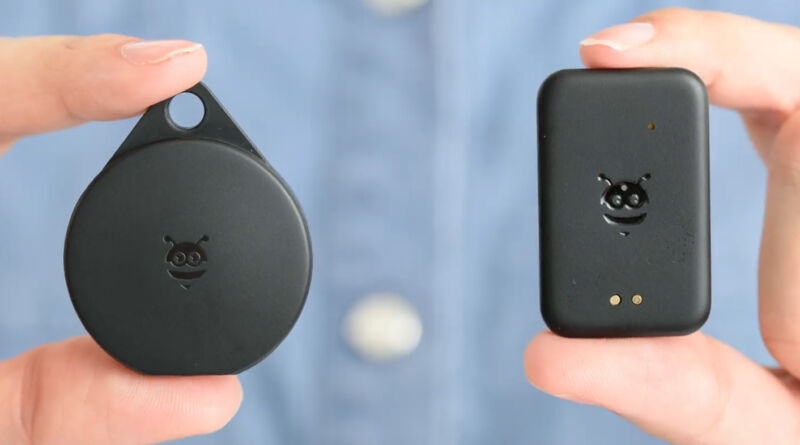Android’s AirTag competitor gears up for launch, thanks to iOS release

Will Google ever launch its “Find My” network? The Android ecosystem was supposed to have its own version of Apple’s AirTags by now. Google has had a crowd-sourced device-tracking network sitting dormant on 3 billion Android phones since December 2022. Partners have been ready to go with Bluetooth tag hardware since May 2023! This was all supposed to launch a year ago, but Google has been in a holding pattern. The good news is we’re finally seeing some progress after a year of silence.
The reason for Google’s lengthy delay is actually Apple. A week before Google’s partners announced their Android network Bluetooth tags, Google and Apple jointly announced a standard to detect “unknown” Bluetooth trackers and show users alerts if their phone thinks they’re being stalked. Since you can constantly see an AirTag’s location, they can be used for stalking by just covertly slipping one into a bag or car; nobody wants that, so everyone’s favorite mobile duopoly is teaming up.
Google did its half of this partnership and rolled out AirTag detection in July 2023. At the same time, Google also announced: “We’ve made the decision to hold the rollout of the Find My Device network until Apple has implemented protections for iOS.” Surely Apple would be burning the midnight oil to launch iOS Android tag detection as soon as possible so that Google could start competing with AirTags.
It looks like iOS 17.5 is the magic version Google is waiting for. The first beta was recently released to testers, and 9to5Mac recently spotted strings for detecting “unwanted” non-Apple tracking devices that were suddenly following you around. This 17.5 update still needs to ship, and the expectation is sometime in May. That would be 11 months after Google’s release.
Just like AirTags, and the Tile network before it, the goal of the project is to enable helpful little Bluetooth tracking tags that can tell you where your stuff is. These Bluetooth tags are super low-power and aim to last for a year on a small battery, which means they don’t have the power to spare for GPS. They can still report their location, though, because they manage to “borrow” the GPS chip of any compatible smartphones in range. Your phone scans for any Bluetooth tags, even ones you don’t own, then notes their approximate location and uploads it to the cloud. This is all done anonymously, and only the owner of the tag can see its location, but everyone in the network pitches in to create a crowdsourced, worldwide thing-tracking network.
Tile started the whole idea by having any user with the Tile app running do anonymous location uploads for every other Tile in earshot. Nothing can compete with the scale of Apple’s version, though, which runs on every iThing out there, and the bigger size of the network makes it a lot more reliable. Android will have an even bigger network if it ever launches. In an ideal world, Android and iOS would just work together to perfectly track every Bluetooth tracker regardless of make and model, but they’re only teaming up for stalking detection.
Google gears up for launch
With the impending iOS release, Google seems to be getting its ducks in a row as well. 9to5Google has a screenshot of the new Find My Device settings page that is appearing for some users, which gives them a chance to opt out of the anonymous tracking network. That report also mentions that some users received an email Thursday of an impending tracking network launch, saying: “You’ll get a notification on your Android devices when this feature is turned on in 3 days. Until then, you can opt out of the network through Find My Device on the web.” The vast majority of Android users have not gotten this email, though, suggesting maybe it was a mistake. It’s very weird to announce a launch in “days remaining” rather than just saying what date something will launch, and this email went out Thursday, which would mean a bizarre Sunday launch when everyone is off for the weekend.
The official announcement could come at any time, but Google said it wanted to wait for Apple, and that means at least a few weeks for actual functionality to be turned on. We also need a launch date from those poor hardware partners that presumably have had tracking tags sitting around in a warehouse for a year. Google’s partners, Chipolo and Pebblebee, have both been taking preorders for Android tracking tags for the past year and don’t have any launch updates.
And speaking of hardware, Google was supposed to be building a first-party tracking tag once upon a time. January 2023 was when we first heard of a device codenamed “Grogu,” which was supposed to have a speaker, UWB compatibility, and Bluetooth LE. Is that still happening? There’s probably time to have made a second-generation device by now. Apple’s May iOS release would be great timing for a Google I/O announcement, but we were also expecting an announcement at the last I/O, so who knows.
https://arstechnica.com/?p=2015125